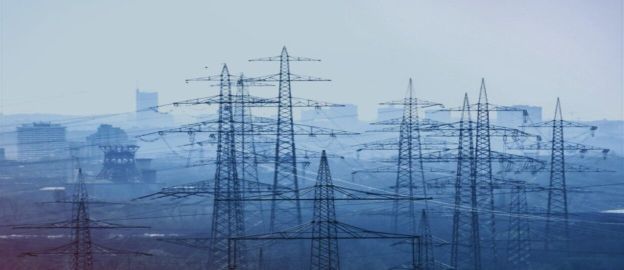Tag:
costs
How to escape the household energy price trap?

Household electricity prices in recent months bore little relation to real production costs, were kept artificially low and treated as an interface with voters. State intervention in this area was necessary in 2022 due to unprecedented price increases on the markets. If the price-freezing mechanisms expire as planned at the end of 2023, electricity prices for households could rise by up to 68% in January. The impact of price spikes should be mitigated. We are proposing a package of solutions: an energy voucher, support for distribution tariffs, additional money for improving the energy efficiency of buildings and a special tariff for heating buildings with electricity.
1 minutes minutes
How to escape the household energy price trap?
Household electricity prices in recent months bore little relation to real production costs, were kept artificially low and treated as an interface with voters. State intervention in this area was necessary in 2022 due to unprecedented price increases on the markets. If the price-freezing mechanisms expire as planned at the end of 2023, electricity prices for households could rise by up to 68% in January. The impact of price spikes should be mitigated. We are proposing a package of solutions: an energy voucher, support for distribution tariffs, additional money for improving the energy efficiency of buildings and a special tariff for heating buildings with electricity.
1 minutes minutes

Lack of transformation hikes energy prices, not climate policy

A recent information campaign led by energy companies and echoed by politicians, suggests that CO2 accounts for as much as 60% of the electricity cost. This message creates an impression that the cost of buying allowances amounts to 60 percent of the end users’ electricity bill. But this is not the case. It does a great deal of harm - it distracts attention from the fundamental problems of the Polish energy sector. It distances us from solutions that can effectively stop price increases. In this article - on the basis of adopted assumptions (presented in the annex) we present, among others, what energy prices for households are actually made of.
14 minutes minutes
Lack of transformation hikes energy prices, not climate policy
A recent information campaign led by energy companies and echoed by politicians, suggests that CO2 accounts for as much as 60% of the electricity cost. This message creates an impression that the cost of buying allowances amounts to 60 percent of the end users’ electricity bill. But this is not the case. It does a great deal of harm - it distracts attention from the fundamental problems of the Polish energy sector. It distances us from solutions that can effectively stop price increases. In this article - on the basis of adopted assumptions (presented in the annex) we present, among others, what energy prices for households are actually made of.
14 minutes minutes

Obligation to sell electricity on power exchange―no time for sudden moves

The Ministry of Climate and Environment have announced its plans to abolish the obligation to sell electricity on power exchange by generators, a so-called ‘obligo’. A public consultation on the proposed law is underway. The topic seems technical and niche. But the effects of the planned changes will be widespread: with the electricity market not very competitive, the abolition of the obligation will increase wholesale prices and have a negative impact on consumers―mainly industrial ones. This is a step backwards in terms of competition and transparency of the electricity market in Poland.
10 minutes minutes
Obligation to sell electricity on power exchange―no time for sudden moves
The Ministry of Climate and Environment have announced its plans to abolish the obligation to sell electricity on power exchange by generators, a so-called ‘obligo’. A public consultation on the proposed law is underway. The topic seems technical and niche. But the effects of the planned changes will be widespread: with the electricity market not very competitive, the abolition of the obligation will increase wholesale prices and have a negative impact on consumers―mainly industrial ones. This is a step backwards in terms of competition and transparency of the electricity market in Poland.
10 minutes minutes

Renewables (RES) in heating

Heating and all of us in Poland have a problem. In domestic heating we rely on technologies from the 50s and 60s of the last century. In winter we have the worst quality air in the European Union. The society bears the enormous health costs related to air pollution - 120 billion PLN annually. We use primarily coal, which we are running out of, and we need to cover the costs of CO2 emission allowances. What next? Does coronavirus mean the end of dreams about clean air and the end of investments in modern technologies? Quite the opposite. Right now we should be looking at renewables.
4 minutes minutes
Renewables (RES) in heating
Heating and all of us in Poland have a problem. In domestic heating we rely on technologies from the 50s and 60s of the last century. In winter we have the worst quality air in the European Union. The society bears the enormous health costs related to air pollution - 120 billion PLN annually. We use primarily coal, which we are running out of, and we need to cover the costs of CO2 emission allowances. What next? Does coronavirus mean the end of dreams about clean air and the end of investments in modern technologies? Quite the opposite. Right now we should be looking at renewables.
4 minutes minutes

Energy Boost for Poland

"Energy Boost for Poland" - a package for the economy prepared by the Forum Energii and Polish Confederation Lewiatan.
Forum Energii and the Confederation Lewiatan call for the adoption of the "Energy Boost for Poland" package, which aims to mobilise available public and private funds for the Polish energy modernization. The implementation of the "Energy Boost for Poland" will stimulate investments worth over PLN 580 billion, which will create 240 thousand new jobs. Investments in the energy sector should be an element of the strategy for overcoming the crisis caused by the coronavirus pandemic.
6 minutes minutes
Energy Boost for Poland
"Energy Boost for Poland" - a package for the economy prepared by the Forum Energii and Polish Confederation Lewiatan.
Forum Energii and the Confederation Lewiatan call for the adoption of the "Energy Boost for Poland" package, which aims to mobilise available public and private funds for the Polish energy modernization. The implementation of the "Energy Boost for Poland" will stimulate investments worth over PLN 580 billion, which will create 240 thousand new jobs. Investments in the energy sector should be an element of the strategy for overcoming the crisis caused by the coronavirus pandemic.
6 minutes minutes

Fighting on the wrong front. Polish gvernment intends to subsidise energy consumption instead of fighting energy poverty

The Ministry of State Assets announces subsidies to energy bills for people earning less than 5 000 net per month. The reaction to the increase in electricity prices in Poland has shown that politicians are so afraid of this subject. However, they have no good idea how to solve it.
9 minutes minutes
Fighting on the wrong front. Polish gvernment intends to subsidise energy consumption instead of fighting energy poverty
The Ministry of State Assets announces subsidies to energy bills for people earning less than 5 000 net per month. The reaction to the increase in electricity prices in Poland has shown that politicians are so afraid of this subject. However, they have no good idea how to solve it.
9 minutes minutes
